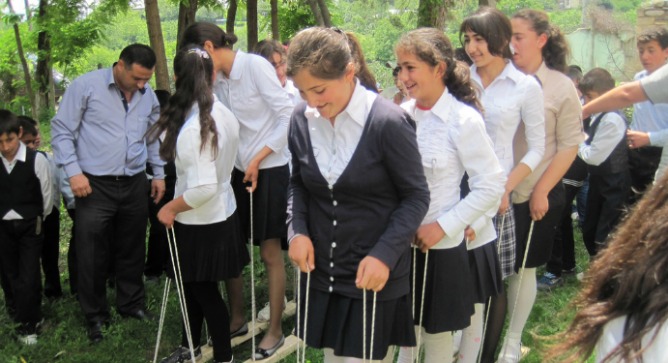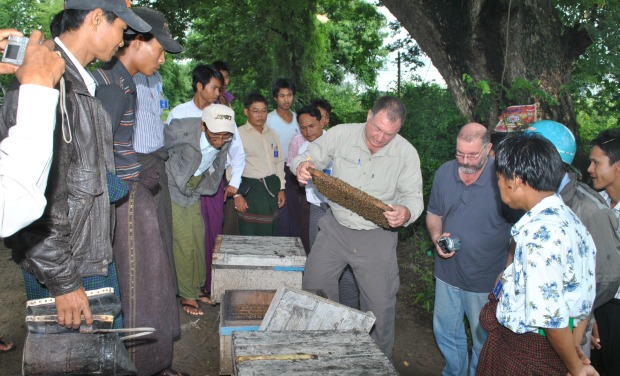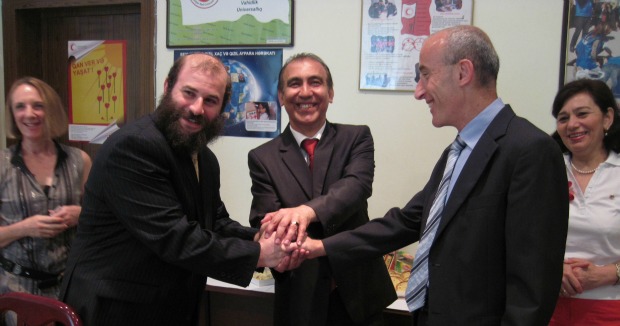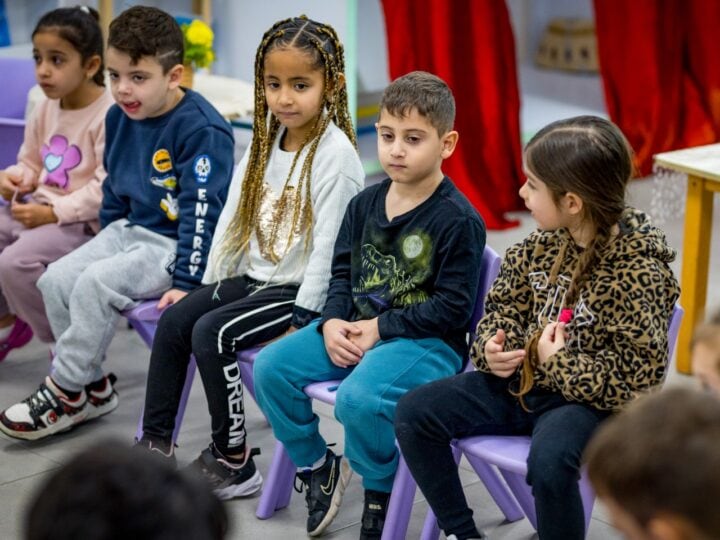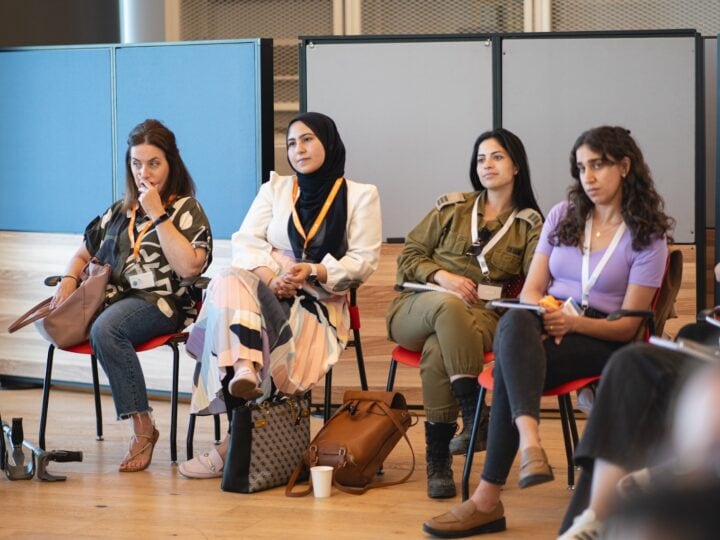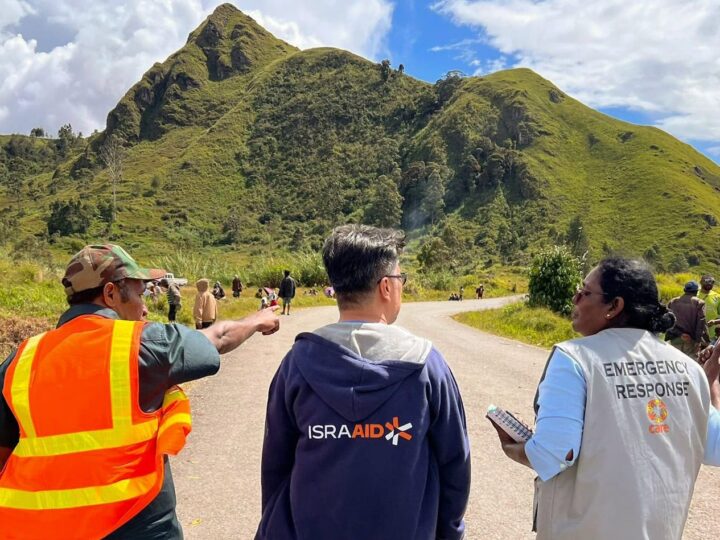The perception of Israel abroad is being molded – in part — by a British charity on a mission to share blue-and-white expertise with the world. The Tag International Development organization runs more than 20 projects in developing nations that focus on health, agriculture, disaster preparedness and community development.
“Israel has a uniquely high concentration of expertise in so many different fields. It is the natural place to come to, to be able to draw innovative solutions,” British Rabbi Yossi Ives, founder of the non-governmental organization, tells ISRAEL21c.
Spread the Word
• Email this article to friends or colleagues
• Share this article on Facebook or Twitter
• Write about and link to this article on your blog
• Local relevancy? Send this article to your local press
A believer in helping others help themselves, Ives set up Tag three years ago to help developing countries overcome their challenges. His model was Israel.
“We strongly believe that the experience that Israel has gained over the past six decades, as it faced and overcame numerous challenges, as well its responses to the volatile situation it continues to address, can be immensely helpful to the developing and transitional world,” reads the Tag mission statement.
Israeli volunteers and professionals have launched beekeeping and road safety projects in Myanmar; empowerment seminars for Bedouin women in Israel and Jordan; emotional resilience, healthcare and weaving projects in Azerbaijan; model farm and agricultural training center in Sri Lanka; and rain harvesting in Kenya, among numerous other projects.
“Tag shows that Israel has a tremendous amount of knowledge and expertise that can be shared and given to developing countries,” Tag Chief Operations Officer Amos Avgar tells ISRAEL21c. “We’re harnessing local capacities and showing they can do it and overcome hardships that they have.”
Changing attitudes
Tag does not hide its use of Israeli expertise. It flaunts it. But because the organization is not specifically an Israeli organization, Tag has been able to make global connections regardless of politics.
In Pakistan, Tag helped establish a safe drinking water project and ran training seminars to teach about the importance and optimum usage of fresh water. In Indonesia, the group is working on setting up a homecare project for the elderly.
While there are no official ties between Jerusalem and Jakarta, the Indonesian project for the elderly is a partnership between Emergency Ambulance Services (EAS), an Indonesian NGO, and Matav, Israel’s largest homecare NGO.
The Indonesian project involves sending Israeli experts to Jakarta and sending Indonesian professionals to Israel to develop all aspects of this new organization.
“We’re building bridges in Indonesia even though it’s a Muslim country,” says Avgar. “Through Tag, we can bring in assistance from Israeli organizations. They know we’re Israelis or Jews, and this helps change the attitudes of the local population. This helps in terms of bringing in good will.”
In addition to Matav, Tag has partnered up with numerous Israeli organizations and individuals including Magen David Adom (MADA), the governmental foreign aid organization MASHAV and universities. Israeli expertise is improving health, first aid, water technology and education, among many other initiatives, in countries around the globe.
“There are hundreds of organizations in Israel contributing to fellow citizens. We export this spirit for volunteerism,” says Ives. “The culture of Israel is to help one another. That’s a wonderful sentiment.”
Ives has a dream that one day, “the world will recognize for non-political reasons that Israel should be the natural destination to come to for solving the world’s problems.”
‘Tremendous respect for Israeli know-how’
At the end of February, Avgar set off to Indonesia to help with a new women’s health initiative. Tag secured the cooperation of Hadassah University Medical Center’s Women’s Center in Jerusalem on a project in which the center will work closely over an extended period with at least two hospitals in Indonesia. Doctors from both countries will meet in Israel and Indonesia during the year and Israeli physicians will train the Indonesian doctors.
Avgar says 2013 “is going to be a busy year” and lists Georgia, Indonesia and Sri Lanka as three places with a number of ongoing initiatives.
The way it works, he explains, is Tag identifies development needs around the globe and assists in implementing programs with knowledgeable partners to meet those needs.
Similar to the homecare project in Jakarta, Tag, together with MATAV and the Georgia Red Cross Society, is currently partnering on a homecare project for the elderly in Tbilisi.
Another ongoing project is the Tag/Sarvodaya Agriculture Center in Sri Lanka, in which Tag is introducing Israeli technologies such as drip irrigation and integrating them with organic farming.
“The expertise Israel has created is particularly relevant to the countries we want to help,” says Ives. “Many of the countries ask for Israeli expertise because they believe [it] will address their needs. There’s tremendous respect for Israeli know-how.”




